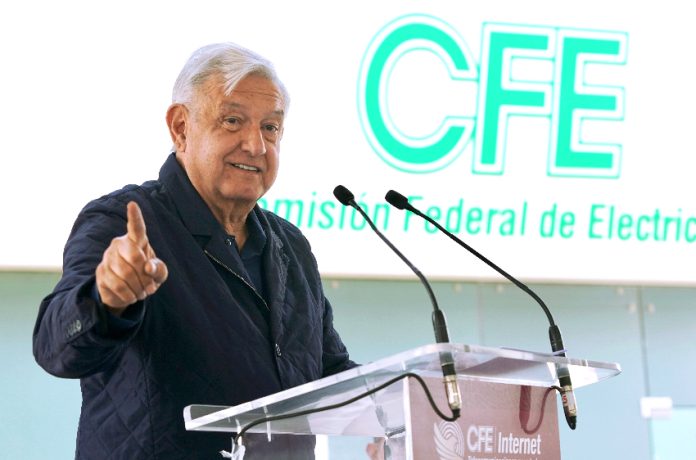Mexico’s current administration, now in its final stretch, will leave behind a legacy of a highly controversial and ideological energy policy that in practice halted the progress of the ambitious 2013 energy reform.
As Mexico gears up for its largest-ever elections, Claudia Sheinbaum (Morena), the candidate currently leading the polls, has declared her intention to continue the main policies of Andrés Manuel López Obrador. This includes a vision of Mexican energy policy that considers the current government was stymied in achieving its energy sovereignty objectives due to an “inherited” legal framework — the energy reform of 2013. Recently, the president has proposed a constitutional reform that dismantles, in part, the legal framework of 2013, for which Sheinbaum has expressed absolute support.
In this context, a review of Claudia Sheinbaum’s academic and policy background on energy issues can help us understand the possible future scenarios that could be at play in the energy sector if she wins the presidency in June. While these ideas may not necessarily materialize as public policy, they provide a scenario of how her perception of the sector has been shaped.
What would be similar to and different from the current administration?
From her writings and speeches, it is clear that Sheinbaum shares with AMLO the idea of having strong state-productive companies to promote energy supply security; that a national energy policy should encourage a low rate of energy imports, particularly emphasizing less dependence on foreign natural gas and fuel imports; and that private participation in the energy sector should be allowed, but in second-order behind the state’s role.
On fossil fuels, Sheinbaum has in the past criticized multiple-service contracts at Pemex, the “obsession” with deep-water exploration at the expense of exploration and production in shallow waters and the need to involve foreign companies in these activities. When it comes to electricity, Sheinbaum publicly backed AMLO’s electricity reform initiative, particularly the idea of the Federal Electricity Commission (CFE) becoming the main electricity generator in Mexico.
So where are the differences? Do they exist?
One area where Sheinbaum seems to differentiate from AMLO’s views has to do with climate change and renewables. There, she has been a longtime advocate of the need for a broader diversification of Mexico’s energy matrix, with a specific focus on increasing the share of renewable energy sources, as well as a deeper commitment to the country’s climate change goals, where she has expressed the need for the country to be more ambitious. For example, during her tenure as Mexico City’s mayor, several of her government’s projects had a personal imprint toward these goals, although she never suggested discomfort with AMLO’s pro-fossil fuel policies in any way.
Hence, if one would want to foresee how a Sheinbaum energy policy would look if she becomes the next president of Mexico, the conclusion would have to be overall continuity. with ideology continuing to shape many policy decisions — with some minor changes.
However, despite any preconceived ideas about the energy sector that either Sheinbaum or her opposition rival Xóchitl Gálvez could have, the inherited challenges that the next administration will face are far more complex than the ones AMLO inherited in 2018. In a nutshell, Mexico faces increasing energy demand due to pent-up demand and nearshoring, coupled with insufficient investment in energy infrastructure, mainly for electricity transmission.
There is also a significant dependence on US natural gas; oil production that has fallen instead of increasing, as the administration promised; a deteriorating financial situation in Pemex; and widespread business distrust primarily caused by abrupt legislative and regulatory changes that halted investments and the function of market mechanisms, such as the oil rounds and electricity auctions.
Therefore, in the end, no matter the ideological views any of the candidates have about energy, reality will play a critical force in shaping the route Mexico will follow in its always highly-politicized energy sector.
This article was originally published by The Mexico Institute at the Wilson Center
Carlos Ramírez serves as the Practice Head of Financial Services and Energy. He previously held a position on Mexico’s Financial Stability Board from 2013 to 2018. During this period, he served as the Chairman of the National Commission of Retirement Savings System (CONSAR), overseeing the regulation of Mexico’s private pension system.
Mónica R. Díaz leads Integralia’s Energy Division, bringing with her extensive experience in Mexico’s energy sector and energy policies. She has a history of working in public institutions and currently provides advisory services to private companies on political and regulatory risks.
Disclaimer: The views expressed in this article are solely those of the author and do not necessarily reflect the views of Mexico News Daily, its owner or its employees.
